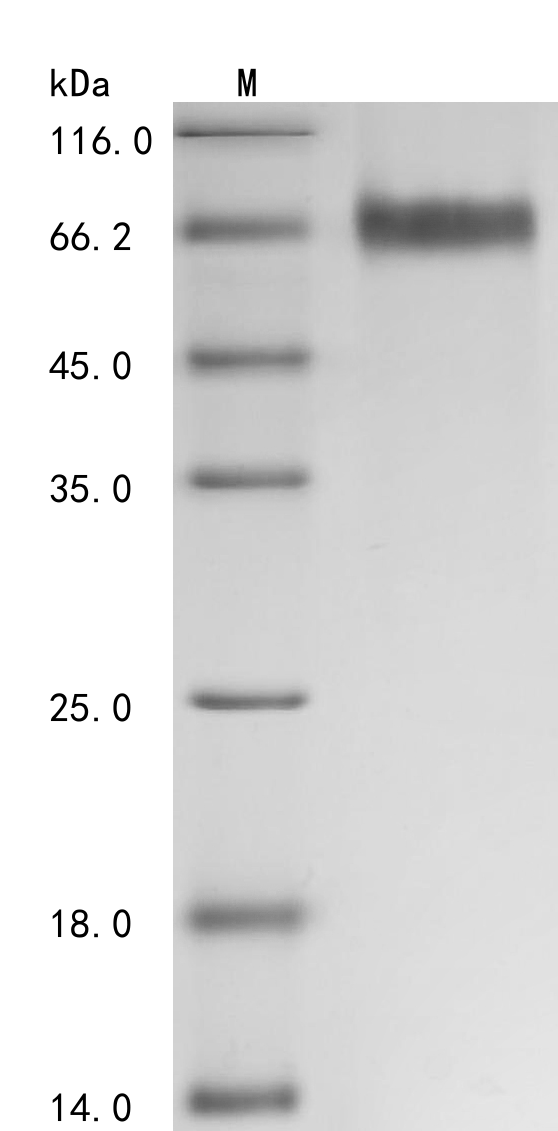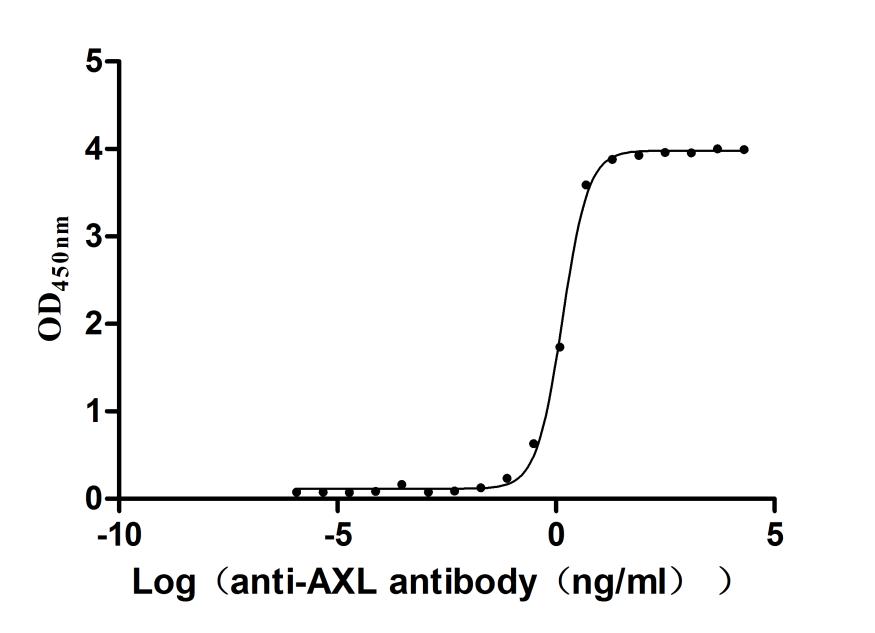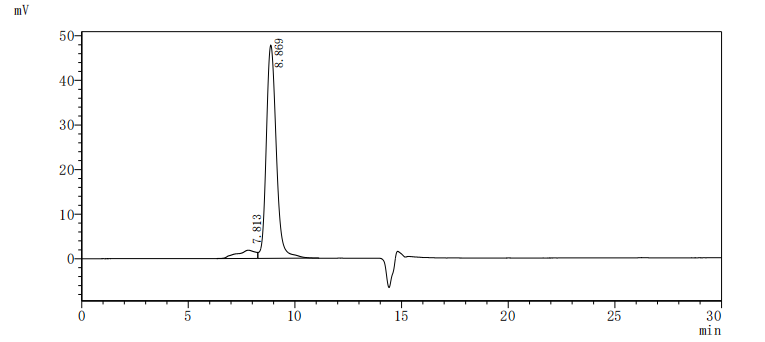AXL is a receptor tyrosine kinase and a member of the TAM family, which plays a significant biological role and is involved in multiple signaling pathways. AXL consists of approximately 894 amino acids with a molecular weight of about 104kDa. Its structure includes an extracellular domain (containing a signal peptide, two immunoglobulin Ig domains, and two fibronectin type III FNIII domains), a transmembrane domain, and an intracellular domain (containing a tyrosine kinase domain). The functions of AXL encompass cell survival, anti-apoptosis, proliferation, migration, and differentiation. Its activation can promote the proliferation, migration, and invasion of tumor cells, and it also plays a role in the recruitment of immune cells and immune responses, potentially being associated with immune evasion. AXL may also act as a potential receptor for the SARS-CoV-2 virus on lung cells, mediating viral adsorption and internalization through specific binding to the viral spike protein. The signaling pathways that AXL is involved in include the PI3K/AKT/mTOR pathway, JAK/STAT pathway, NF-κB pathway, RAS/RAF/MEK/ERK pathway, and the epithelial-mesenchymal transition (EMT) process. These pathways play roles in cell survival, proliferation, migration, inflammatory responses, and immune cell functions. Abnormal expression of AXL is closely related to the occurrence, development, and drug resistance of various tumors, making it a potential target for cancer therapy. Therapeutic strategies targeting AXL, including small molecule inhibitors, monoclonal antibodies, aptamers, and soluble receptors, are under development and are expected to improve the therapeutic outcomes for cancer patients. In summary, as a multifunctional receptor tyrosine kinase, AXL plays an important role in tumor development, immune regulation, and viral infection, and is one of the hot topics in current biomedical research.





